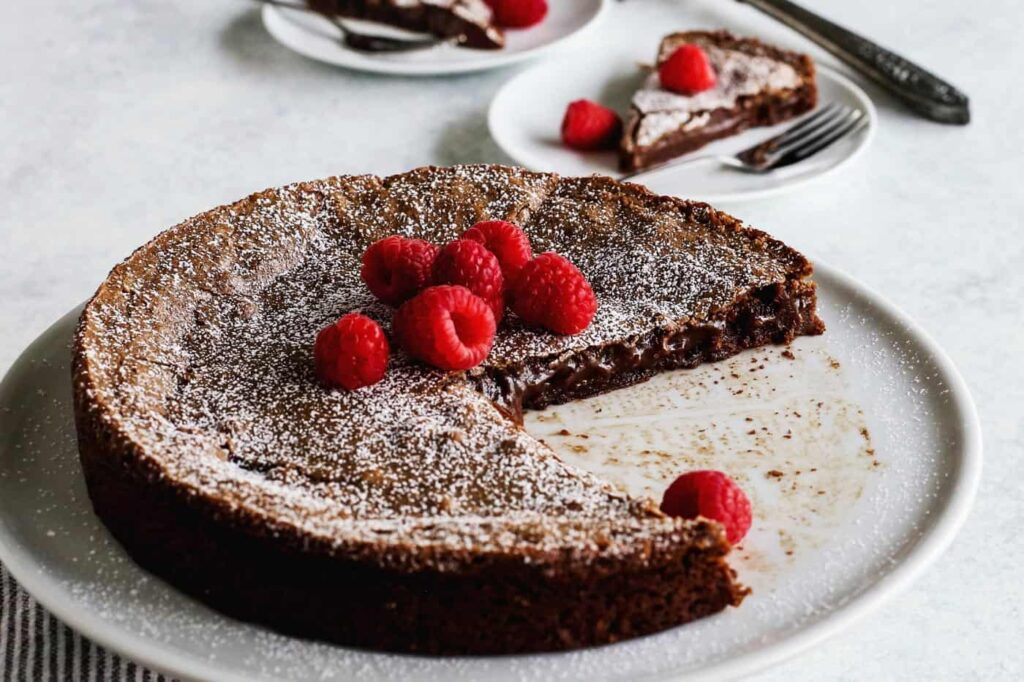Sweden’s beloved dessert, kladdkaka, translates roughly to “sticky cake” — and rightly so: with a crisp, thin crust and a decadently gooey, rich interior, it stands apart from typical chocolate cakes. The simplicity of its ingredients — flour, butter, eggs, sugar, vanilla and cocoa — belies its deep flavour and cultural resonance. In cafes across Sweden, slices of kladdkaka are served during the cherished fika tradition: a moment of pause, coffee, and sweet company.
Beyond just a dessert, kladdkaka embodies several facets of Swedish food culture — minimalism, comfort, and community. Because it is so forgiving to prepare and perfect in texture, many Swedish households treat it as a go-to for birthday parties and gatherings. The key lies in timing: the centre must remain slightly under-baked so it retains its signature sticky centre, and the outer layer forms a thin shell. Over-baking defeats the texture. This intentional imperfection — gooey, not firm — aligns with the dessert’s charm and tradition.
For home bakers and dessert enthusiasts seeking authenticity, mastering kladdkaka becomes a way to connect with Swedish heritage. Use high-quality cocoa and butter, keep flour minimal, and opt for a moderate bake — remove the cake when the centre still wiggles slightly. Serve it warm with whipped cream, a dusting of powdered sugar or fresh berries to create contrast and elevate the experience. Whether as a solo treat or part of a coffee break ritual, kladdkaka reminds us that desserts don’t need complexity to capture character — sometimes the stickiest, simplest cakes leave the deepest impression.

